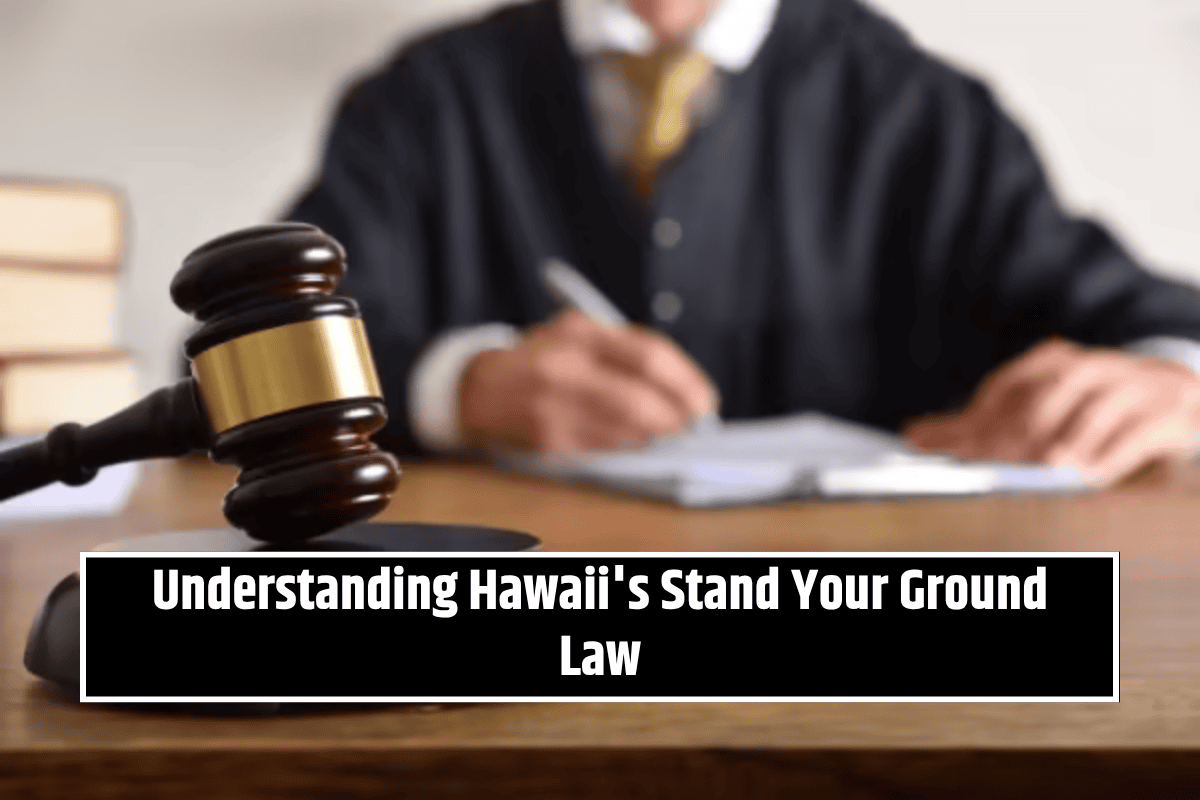Hawaii, known for its beautiful islands and rich culture, also has a legal framework designed to protect its residents’ safety. Among the key components of this legal structure is the “Stand Your Ground” law. While many people may have heard of this law, the specifics of how it works in Hawaii can be confusing.
This article aims to shed light on Hawaii’s Stand Your Ground law, helping you understand what it entails and how it may affect individuals in the state.
What is a Stand Your Ground Law?
The Stand Your Ground law is a legal principle that allows individuals to use force in self-defense without the duty to retreat. This means that if someone feels threatened with imminent harm, they can defend themselves, even if they have the option to escape the situation.
Stand Your Ground laws are often associated with gun ownership, but they apply to all forms of self-defense, not just with firearms.
In some states, such laws apply only in situations where a person is in their home, also known as the “Castle Doctrine.” However, in places with a broader Stand Your Ground law, like Hawaii, the law allows individuals to defend themselves outside their homes as well, as long as they are in a situation where they reasonably fear harm.
Hawaii’s Stand Your Ground Law
Hawaii’s Stand Your Ground law, while similar in many respects to those of other states, has some unique aspects. Under Hawaii law, people do not have a legal obligation to retreat from a dangerous situation if they are lawfully present in a location.
For example, if someone is attacked while walking down the street or in a public park, they are legally permitted to defend themselves without first attempting to retreat.
The law applies to any situation where a person reasonably believes they are in imminent danger of serious bodily harm or death. In such cases, individuals may use deadly force if necessary. However, the use of force must be proportional to the threat.
For instance, if someone is threatened with physical harm but the threat does not appear to be life-threatening, using deadly force may not be justified.
When Does the Stand Your Ground Law Apply?
Hawaii’s Stand Your Ground law applies when an individual is in a place where they are legally allowed to be. This means that if a person is on public property or even on their own property, they can use force to protect themselves from harm.
However, the law is not a “free pass” to use force in any situation. It is important to note that the law only protects individuals who act in a reasonable and proportionate way when defending themselves.
If the threat is not immediate, or if the person can safely retreat or avoid the confrontation, the law may not apply. It is important to understand that the use of force should always be the last resort and must be justifiable under the circumstances. A person who uses force must prove in court that their actions were necessary to prevent harm.
Legal Consequences of Using Force
While Hawaii’s Stand Your Ground law provides the right to defend oneself, it does not grant immunity from criminal or civil liability. If a person uses force, especially deadly force, the incident may still be investigated. Law enforcement officers will examine the facts to determine whether the force used was justified under the law.
In cases where a person is charged with a crime, such as assault or homicide, they may have the opportunity to raise the Stand Your Ground defense in court. If the court finds that the person acted reasonably in self-defense, the charges may be dropped. However, this will depend on the specific details of the case and the evidence presented.
Criticism of Stand Your Ground Laws
Although Hawaii’s Stand Your Ground law is meant to protect individuals, it has been met with some criticism. Critics argue that these laws can encourage unnecessary violence, especially in situations where the threat of harm may not have been as severe as perceived.
In some cases, there have been concerns that the laws may disproportionately affect certain communities, potentially leading to unfair outcomes in self-defense cases.
Proponents, however, argue that the law is essential for ensuring personal safety and preserving the right to protect oneself. They contend that people should not be forced to retreat in situations where they are in immediate danger.
Hawaii’s Stand Your Ground law is an important aspect of the state’s legal system, giving individuals the right to defend themselves when facing imminent danger. However, as with any law, it comes with certain limitations and responsibilities.
It is crucial for individuals to understand that using force in self-defense should always be the last resort and must be justified by the situation. Understanding the full scope of this law helps residents and visitors to make informed decisions about their safety and legal rights while in Hawaii.












